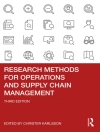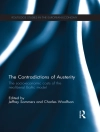A concise introduction to cosmology and how light first emerged in the universe
Though astrophysicists have developed a theoretical framework for understanding how the first stars and galaxies formed, only now are we able to begin testing those theories with actual observations of the very distant, early universe. We are entering a new and exciting era of discovery that will advance the frontiers of knowledge, and this book couldn’t be more timely. It covers all the basic concepts in cosmology, drawing on insights from an astronomer who has pioneered much of this research over the past two decades.
Abraham Loeb starts from first principles, tracing the theoretical foundations of cosmology and carefully explaining the physics behind them. Topics include the gravitational growth of perturbations in an expanding universe, the abundance and properties of dark matter halos and galaxies, reionization, the observational methods used to detect the earliest galaxies and probe the diffuse gas between them—and much more.
Cosmology seeks to solve the fundamental mystery of our cosmic origins. This book offers a succinct and accessible primer at a time when breathtaking technological advances promise a wealth of new observational data on the first stars and galaxies.
- Provides a concise introduction to cosmology
- Covers all the basic concepts
- Gives an overview of the gravitational growth of perturbations in an expanding universe
- Explains the process of reionization
- Describes the observational methods used to detect the earliest galaxies
Sobre el autor
Abraham Loeb is professor of astronomy and director of the Institute for Theory and Computation at Harvard University.












